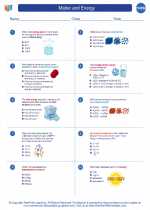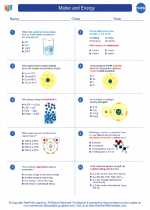Parasites: Explanation and Study Guide
Definition of Parasites
Parasites are organisms that live on or inside another organism (the host) and benefit at the expense of the host. They can cause harm to the host by feeding on its tissues, cells, or bodily fluids.
Types of Parasites
There are three main types of parasites:
- Ectoparasites: These are parasites that live on the surface of the host's body, such as fleas, lice, and ticks.
- Endoparasites: These are parasites that live inside the host's body, such as intestinal worms, protozoa, and tapeworms.
- Parasitoids: These are organisms that lay their eggs inside the host, and the larvae develop by feeding on the host's tissues, eventually killing it.
Life Cycle of Parasites
Parasites have complex life cycles that often involve multiple hosts. The life cycle may include stages such as egg, larvae, pupa, and adult, and may involve both sexual and asexual reproduction.
Effects of Parasitism
Parasites can have various effects on their hosts, including:
- Reduced host fitness and reproductive success
- Damage to host tissues and organs
- Transmission of diseases
- Altered behavior of the host
Control and Prevention of Parasitic Infections
Methods for controlling and preventing parasitic infections include:
- Good hygiene practices, such as regular handwashing and proper sanitation
- Use of insect repellents and protective clothing to prevent ectoparasite infestations
- Regular deworming and parasite control in pets and livestock
- Medical treatments, such as antiparasitic drugs and vaccines
Study Guide
When studying parasites, it's important to focus on the following key points:
- Understand the different types of parasites and their specific characteristics.
- Learn about the life cycles of common parasites and how they are transmitted.
- Explore the effects of parasitism on host organisms and the potential health implications for humans and animals.
- Examine the methods used to control and prevent parasitic infections in both humans and animals.
◂Chemistry Worksheets and Study Guides High School. Matter and Energy
Worksheet/Answer key Matter and Energy
Matter and Energy  Worksheet/Answer key
Worksheet/Answer key Matter and Energy
Matter and Energy  Worksheet/Answer key
Worksheet/Answer key Matter and Energy
Matter and Energy 

 Worksheet/Answer key
Worksheet/Answer key
 Worksheet/Answer key
Worksheet/Answer key

The resources above cover the following skills:
PHYSICAL SCIENCE (NGSS)
Matter and Its Interactions
Students who demonstrate understanding can:
Develop a model to illustrate that the release or absorption of energy from a chemical reaction system depends upon the changes in total bond energy.
Energy
Students who demonstrate understanding can:
Develop and use models to illustrate that energy at the macroscopic scale can be accounted for as either motions of particles or energy stored in fields.